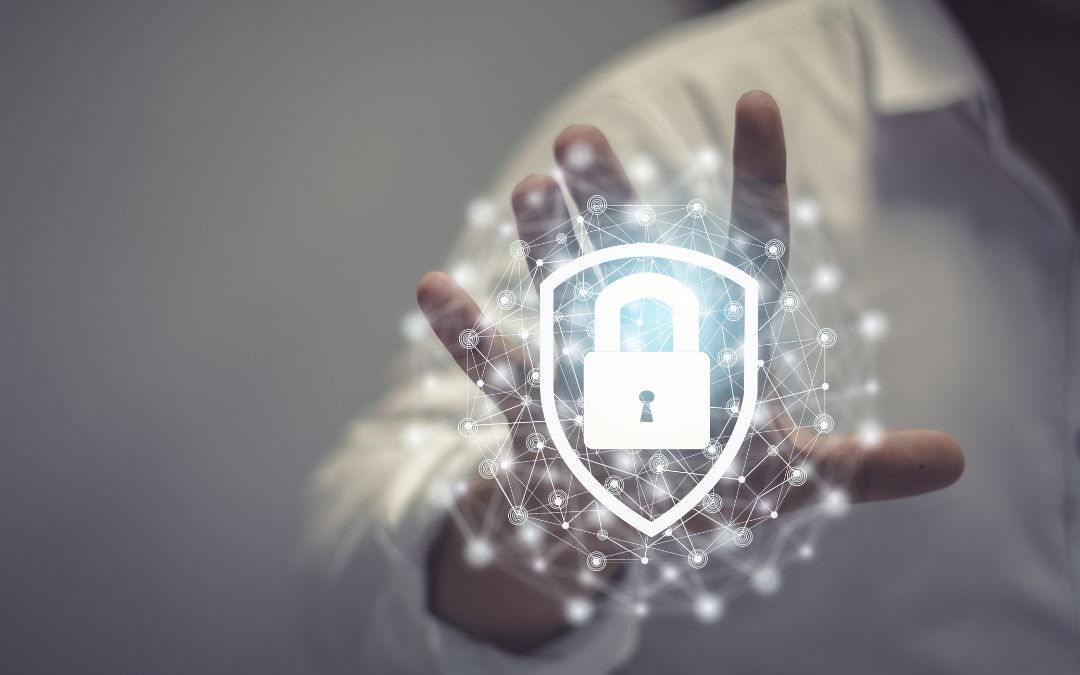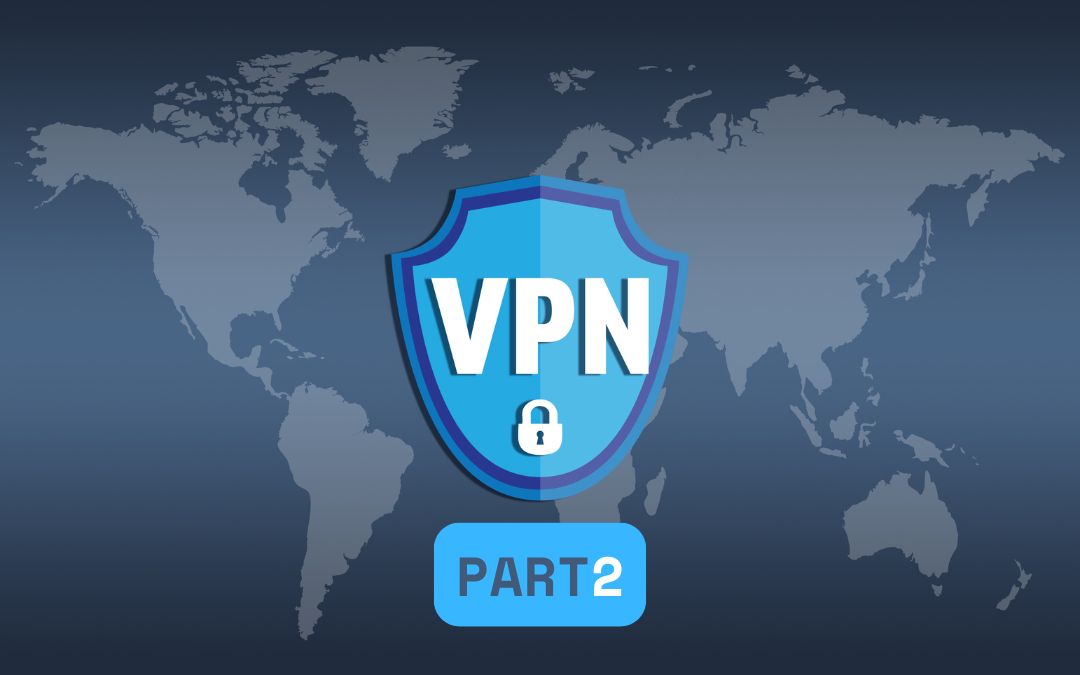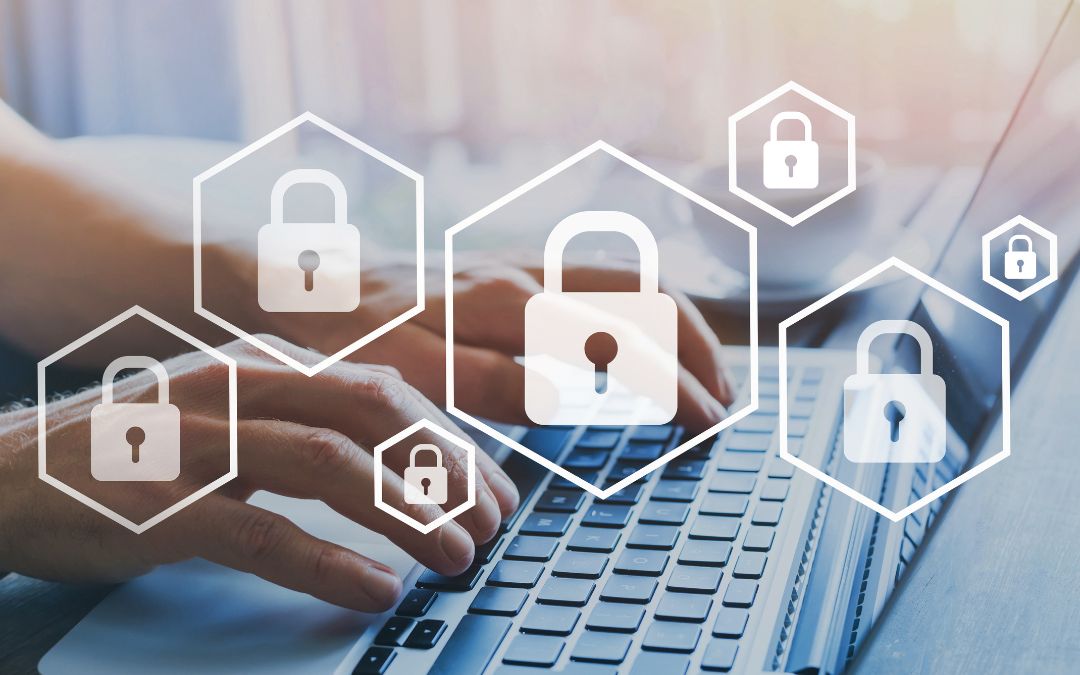
Today’s blog is all about encryption. We’re going to talk about what encryption is, how it works, why it’s important, and more. Specifically, we’re also going to explore the great debate around encryption, whether strong, unbreakable encryption should exist, or if it should be made slightly weaker in certain situations, and why this matters for all of us.
I’ll be drawing on more than two decades of experience as a specialist in IT support services as we deep dive into this fascinating field.
Okay, let’s get started!
Crack or Protect? Encryption vs Enforcement
As someone who has spent a good chunk of my life playing with algorithms, wrestling with servers, and speaking the language of 1s and 0s, I’ve always found a particular interest in the intricacies of encryption. Today we’re going to get our hands dirty, and better understand both sides of the debate between governments and IT pros when it comes to encryption. Before we dive headfirst into the deep, multi-layered sea that is the encryption debate, let’s ensure we’re all speaking the same language. We need to understand what encryption is and why it’s crucial in our digital age.
What is Encryption?
Encryption, in its simplest form, is like a magical cloak that helps secure information by converting it into a secret code. It obscures the true meaning of the data, rendering it unreadable to anyone without the correct decryption key. Imagine you’re in a room full of people and you’re trying to have a conversation with someone. If you speak the same language as everyone else in the room, they will all be privy to your dialogue. Now, that’s no problem if you simply want to share your Sunday lunch recipe, but if you want to discuss your mortgage details or confidential information then you’re going to have an issue. For that reason, smart people created a way of encrypting your data in transit which turns normal English into Gobbledygook. Everyone can hear it but only the intended recipient can turn that into normal words. This is a very simple analogy, but it gets to the heart of what encryption does.
End-to-end Encryption
Now that we grasp what encryption is, let’s turn our attention to a specific type of encryption that’s been getting a lot of attention lately: end-to-end encryption (E2EE). E2EE is like a VIP security detail for your data. When a message is sent using E2EE, it is encrypted at the source, stays encrypted while it travels through the vast expanse of the internet, and only gets decrypted when it reaches its intended destination. This ensures that regardless of whether your data is in transit or at rest, it is always secure. It’s like sealing a letter in an envelope before mailing it, so that it remains sealed throughout its journey, but instead of paper and glue, we use advanced mathematics and computer science aka encryption.
This method ensures that no one, not even the service provider facilitating the communication, can access the contents of the message. Whether it’s your bank details, an email to your boss, or the latest family holiday photographs you’re sending, E2EE ensures that it is for your eyes and the recipient’s eyes only.
The importance of this cannot be overstated in an era where data is the new gold, and hackers are always on the prowl. For more on hackers, read one of my previous blogs on phishing or cyber security: How to stop Phishing.
But that’s only half the story. Stick around as we delve deeper into this fascinating world and discuss the heated debate on whether to preserve this powerful shield or weaken it for the sake of law enforcement and societal safety. This might sound complex, but my colleagues and I have spent 20 years working to help individuals, businesses, and other organisations, understand IT issues with simple language and easy to follow solutions. From cloud computing to IT compliance, we can help. In other words, we’ll decode the encryption debate together, folks.
Overview of the current debate on weakening encryption
As the digital world grows and evolves, so does the complexity of the conversations we’re having about it. One of the most heated debates is about the weakening of strong data encryption – a discussion with far-reaching implications for everyone from government officials to tech developers to the everyday internet user.
Should we weaken encryption?
On one side of the debate, we have government agencies and certain advocacy groups who argue for the need to weaken encryption. They believe that strong, unbreakable encryption can serve as a shield for criminals, including hackers, terrorists, and child exploiters, to hide their illicit activities. By creating “backdoors” or weakening encryption, they argue that law enforcement could more easily access crucial information for the investigation and prevention of crimes.
The case for keeping strong encryption
However, this perspective isn’t shared by everyone. IT professionals, cybersecurity experts, and privacy advocates argue that the weakening of encryption puts everyone’s data at risk. They believe that creating a backdoor for good guys means creating a potential entry point for bad guys as well. Once a system’s encryption is weakened, it can be exploited by hackers and other nefarious entities to steal personal information, and trade secrets, or even disrupt essential services.
Encryption: Is There a Right or Wrong?
The two opposing sides on the encryption debate often clash in their views, as they both present legitimate concerns. The challenge is to find the right balance between protecting privacy and ensuring security. This ongoing debate raises critical questions about the future of our digital world. How can we ensure the privacy and security of individual data while still enabling law enforcement to do their job effectively? Are there potential middle-ground solutions, or is this a zero-sum game?
In the following sections of today’s encryption focussed blog, we’ll delve into these perspectives more deeply, considering the potential benefits and risks of each side. But remember, this isn’t just an abstract debate – it’s a conversation about the future of our digital lives. It’s a conversation we all need to be part of and applies to your own computer usage both at home and in the workplace.
The Case for Weakening Encryption Argument from Government Entities
Presently, surveillance has become an integral part of maintaining law and order. From the perspective of government bodies worldwide, having the ability to monitor digital communication is vital in crime prevention and national security.
Authorities argue that strong encryption can serve as a digital sanctuary for criminals, hindering law enforcement’s efforts to keep the public safe. For instance, cases have emerged where encrypted devices and communication platforms have served as a barrier in criminal investigations, including cases of terrorism and organised crime.
A notable instance is the San Bernardino shooting incident in 2015, where the FBI struggled to access data from the shooter’s iPhone due to Apple Inc.’s robust encryption. This standoff between Apple Inc. and the FBI brought the debate over encryption into the spotlight, raising questions about the balance between individual privacy and public safety.
The Perspective of Charity Groups
On a more granular level, charity groups, particularly those focused on child protection, have also voiced concerns about the use of strong encryption. They point out that encryption technologies can unfortunately provide a cloak of invisibility for those looking to exploit children online.
Charities argue that weakening encryption could provide law enforcement with the tools necessary to trace illegal activities more effectively and safeguard vulnerable individuals. They believe that a regulated approach to encryption could disrupt networks of child exploiters and limit their ability to operate undetected.
While these perspectives provide compelling reasons to reconsider our approach to encryption, they also raise significant questions about potential risks and unintended consequences. In the next section, we’ll turn our attention to those concerns raised by IT professionals and privacy advocates.
The Case Against Weakening Encryption – The IT Perspective
IT professionals, the guardians of our digital world, have been vocal critics of proposals to weaken encryption. They warn that any such move would increase the risk of cyberattacks and compromise data security.
In essence, the argument is simple – if you build a backdoor, it won’t just be the good guys who use it. Weakening encryption, even in the name of law enforcement, opens up the potential for cybercriminals to exploit these same vulnerabilities. The result could be an increase in data breaches, identity theft, and cyberattacks on individuals and businesses.
Take, for example, a small business that relies on encrypted communication to share sensitive financial data. With weakened encryption, this business could be exposed to cyberattacks, potentially leading to substantial financial losses. Individuals, too, could find their personal information, from intimate conversations to their banking details, being exposed.
Global Implications of Encryption
The debate extends beyond just privacy and cybersecurity and enters the realm of human rights and political dissent. Encryption often serves as a lifeline for activists and journalists in countries with strict government control, allowing them to communicate securely and avoid persecution. However, weakened encryption could jeopardize these protections. For instance, an activist sharing sensitive information in an oppressive regime could be exposed and targeted if their encrypted communications were compromised. Furthermore, governments with a history of suppressing dissent could potentially misuse these backdoors to spy on their citizens, stifling freedom of speech and undermining democracy.
It’s clear the stakes are extremely high on both sides of this complex debate, and the challenge lies in striking a balance that protects individual privacy, ensures national security, and upholds the principles of democracy. As we navigate the issues surrounding encryption, it’s crucial to remember what’s at stake – the security and privacy of our digital lives, and in many cases, our physical ones too.
Analysis and Comparison
As we venture into this digital labyrinth, it becomes clear that the encryption debate is no simple binary decision. It’s about balancing the delicate scales of privacy and security, individual rights and societal protection. This is not easy, but we’re going to do our best to guide you through this debate.
Comparing the Potential Benefits and Risks
On one hand, proponents for weakening encryption argue for its benefits in terms of bolstered law enforcement capabilities and potential for crime prevention. The prospect of unmasking malicious actors and disrupting their activities can’t be overlooked, especially in scenarios involving the most heinous crimes like child exploitation and terrorism.
Conversely, strong encryption advocates warn against substantial risks. They highlight the threats to privacy, increased potential for cybercrime, and the grave risk of misuse by authoritarian regimes. The danger lies in creating a slippery slope – once the principle of secure encryption is compromised, the descent into a surveillance state could be rapid and irreversible.
Potential Middle-ground or Compromise Solutions?
Finding a middle ground in this polarized debate isn’t straightforward, but various compromise solutions have been proposed. One suggestion is ‘exceptional access’, where encrypted data could be accessed under specific, tightly regulated circumstances. However, critics argue that this still introduces a vulnerability that could be exploited.
Another proposal involves focusing on metadata – the information about who is communicating, when, and how often, but not the content of the messages. In many cases, this information can be as revealing as the content itself and could provide a valuable tool for law enforcement.
While these compromise solutions have their merits, they also carry their risks and complexities. The encryption debate is a clear indication that as our society becomes increasingly digital, finding the right balance between security and privacy is one of the most pressing challenges we face. As this conversation continues, our collective responsibility is to engage, question, and ensure that the decisions we make are in the best interest of our digital society at large.
Conclusion: Final Words on Encryption
In this vast digital cosmos we inhabit, the encryption debate continues to reverberate, eliciting a spectrum of responses from government agencies, IT professionals, advocacy groups, and ordinary internet users.
Let’s briefly recap. On the one side, there’s the call for weakening encryption to boost surveillance capabilities and aid in crime prevention. Opposing this is the defence of strong encryption to protect privacy, prevent cybercrime, and support political dissent, especially in areas with stringent government controls.
From my vantage point, as an IT specialist who has spent years navigating the nebulous pathways of data security, I understand the gravity and complexity of this issue. It’s not a black-and-white situation, but rather a multi-layered, intricate challenge that calls for nuanced conversation, thoughtful compromise, and continuous learning.
And hey, speaking of nuanced conversations, I’d love to delve deeper into this with any of you who share an interest in this crucial topic. Are you passionate about the future of our digital privacy and security? Do you have a unique perspective or insightful questions about the encryption debate? If the answer is yes, let’s sit down and chat about it. I’d like to extend an invitation to join me on a podcast episode where we will continue this essential discussion. It’s a fantastic opportunity for us to learn from each other and bring different perspectives to light.
In the meantime, I encourage all of you to continue learning, questioning, and participating in this debate. It’s our collective responsibility to shape the digital world in which we live, work, and play. Because at the end of the day, this isn’t just about encryption – it’s about the kind of digital society we want to create and be part of. So, let’s connect, converse, and shape our digital future together. I’ll look forward to hearing from you!
I hope you’ve enjoyed my latest blog and found it useful. I’ve spent a quarter of a century working in IT, building up the knowledge and expertise to help YOU with your tech problems and make your digital life easier. As well as sharing what I have learned for free through this weekly blog, I have also assembled a friendly team of experts who specialise in IT support in London, nationally, and internationally.
If you need a helping hand, simply send us a message at [email protected] or call us on 0800 389 6798. Our IT support services for businesses include everything from cyber security, cloud computer, and IT compliance to IT infrastructure support, cyber essentials, IT office relocation, and more. We love working with our IT support clients and using our IT knowledge and experience to make their lives easier. We take care of the tech stuff so you can focus on what you do best. You can contact us by clicking here.
Sign up below to join the Operum newsletter



